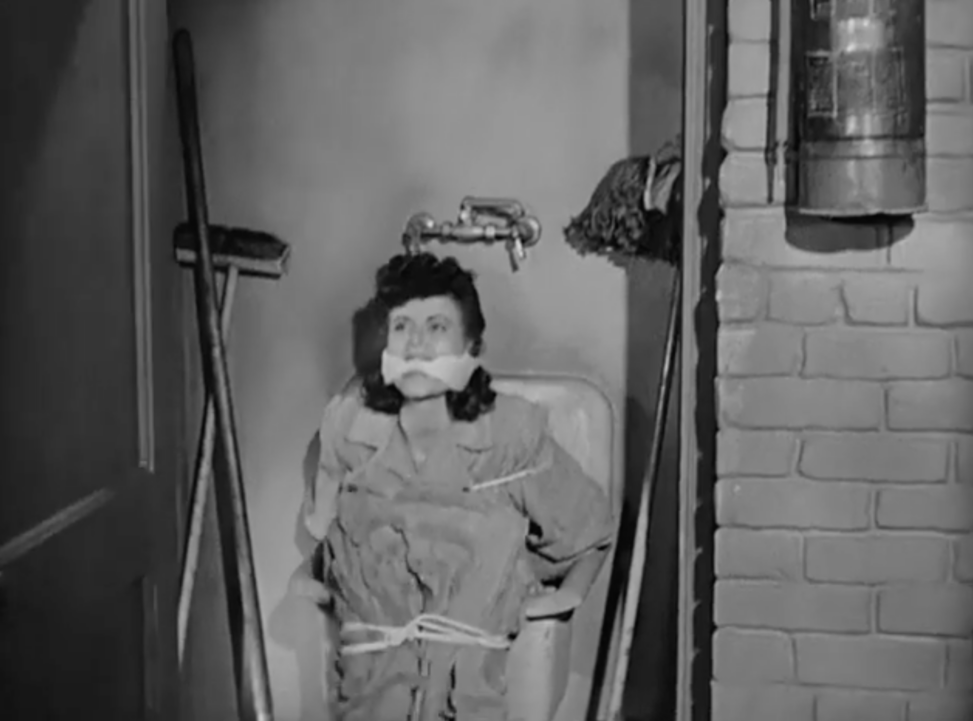Throughout Season 1 of “I Love Lucy” (1951), in Episode 3 titled “The Diet,” we see the main protagonist, Lucy, fighting for her role as a singer and dancer in none other than her husband’s band. When Lucy comes to the audition, she faces The Auditioning Dancers: four beautiful and talented women who are also auditioning for a place in Ricky’s band. The sense of competition between women, and more specifically, skinny, beautiful, talented women, is heightened when all the auditioners fit this category of “The Hollywood Girl” perfectly. In her essay Promoting Hollywood Extra Girl (1935), Heidi Kanaga talks about this phenomenon, while exemplifying Shelley Stamp’s details regarding fanatic culture: “[S]uch fans, ‘unable to separate film viewing from romantic dreams of their own stardom, remained hopelessly caught between their fascination with stories on screen and a narcissistic desire to appear there themselves'” (82). This makes “The Diet” episode pervasively reflective of the reality for women trying to break into the industry. Starting with the fact that “[A] woman had one-sixth of the chance that a man did of getting an assignment” (84), in an already competitive business, the odds of starting and maintaining a career in Hollywood as a woman decrease exponentially because the system favors men. Now, competition for getting cast in roles in a time when physical and external demands were so high made it even worse, as women were exploiting themselves to secure them. Kanaga mentions the industry’s unreachable standards, stating that women often “[H]ad to be turned away since they could neither ‘talk nor dance nor sing'” (85). Just like Lucy, who was overlooked for her weight, there was a fine line between talent and getting the producer or company on your side. This involved taking extreme measures like destabilizing diets or exercising beyond their physical capabilities. It also meant keeping quiet regarding sexual abuse and assault in order to get a real chance. By the end of the episode, the legitimate audition winner, or as we come to know her, The Woman Lucy Locks in a Closet, is set free by Lucy. We realize that Lucy locked her in order to steal her role and take that chance for herself. Lucy embodies the “Hollywood Extra Girl” message and openly reveals that she would do anything to get her foot in, including locking the woman who legitimately got the role in a closet. In this scenario, The Woman Lucy Locks in a Closet not only has her identity overlooked to the extent that she (nor any of the other Auditioning Dancers, for that matter) does not have a name, but she has also been deprived of the chance to claim her promised role. She is locked in the closet for the entire performance and is forced to stay there while it successfully goes on without her. Not only did the system pit women against each other, but it also normalized these inhumane standards and treatments for any woman who wanted to be in Hollywood. However, as Kanaga says, “Nonetheless, these young women, […] comprising an opportunistic labour surplus at a time when any job was difficult to find, and largely bereft of voice or power, embodied a measure of the mobility, self- sufficiency and even autonomy that traditionally adhered to men. […] The Hollywood Extra Girl becomes a critical figure in the domain of mass entertainment, signifying determinant shifts in the performance of gender during the first decades of the twentieth century”. (88) Thus, The Woman Lucy Locks in a Closet is more than just a means for Lucy to get the role; she is the embodiment of an unstable, misogynistic system. Her character space is small, yet what she represents is larger than the episode itself. It is a reality for many women, and it serves as a call to action for the viewer.
Works Cited
“The Diet.” “I Love Lucy,” created by Jess Oppenheimer, directed by Marc Daniels, Desilu Productions, 1951.
Kenaga, Heidi. Promoting Hollywood Extra Girl (1935). Screen, vol. 52, no. 1, 2011, doi:10.1093/screen/hjq062

Provide Feedback